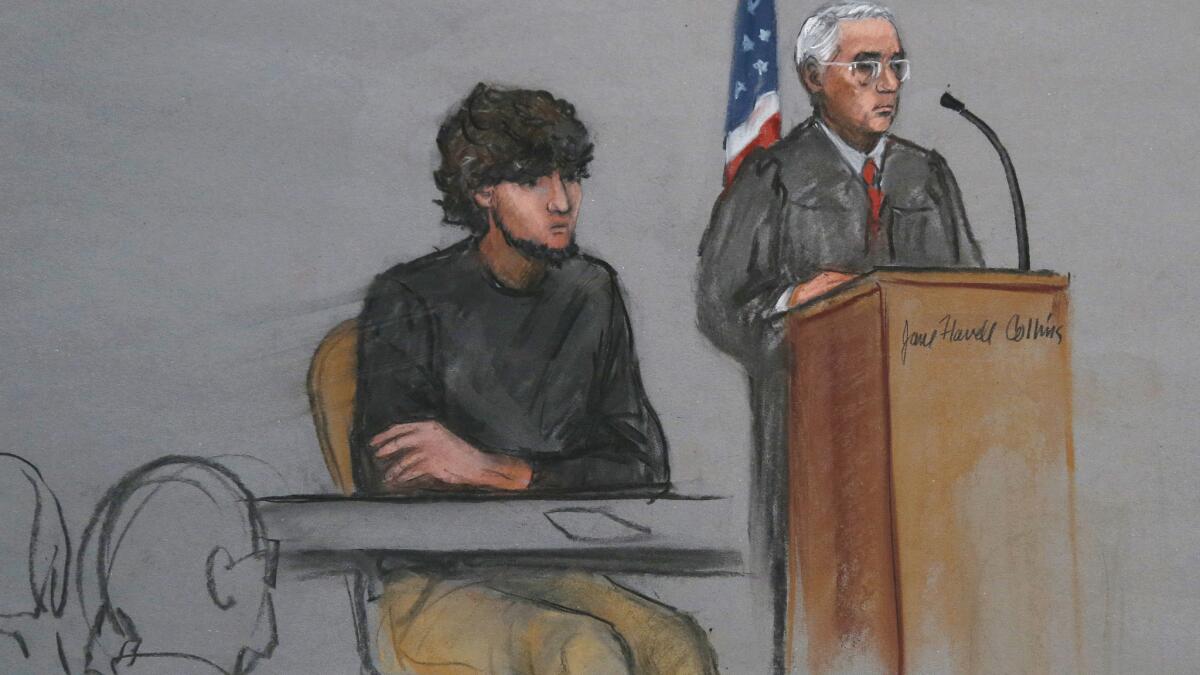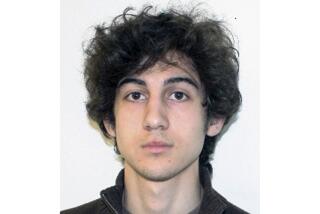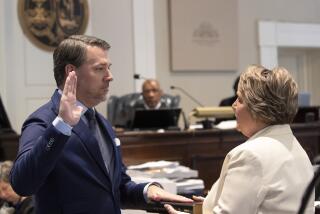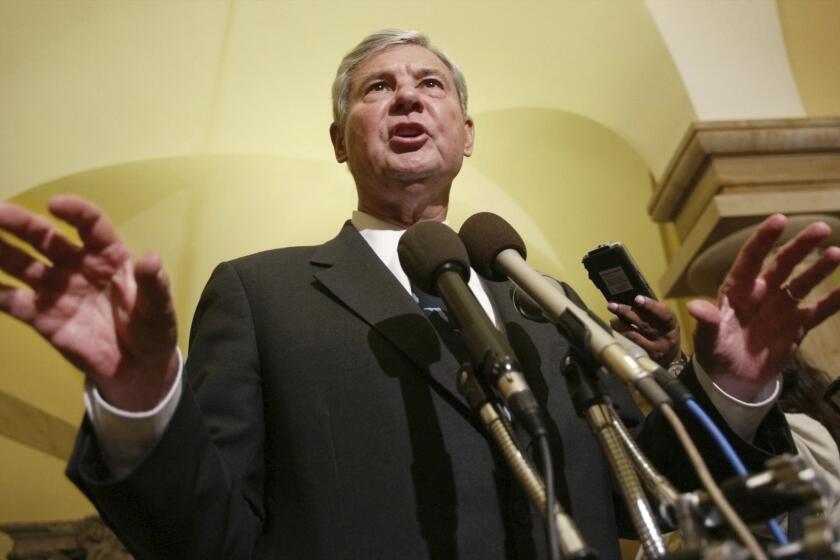Trial venue change, as sought in Boston Marathon case, is rare

Defendants in high-profile criminal cases often look to move their trials to another county or state as a way of improving the odds of finding jurors who are not already inclined to believing they are guilty.
The most recent case in point: Dzhokhar Tsarnaev, accused of planting bombs at the finish line of the Boston Marathon in 2013. The bombing, which killed three and injured more than 260 people, touched almost everyone who lived anywhere near Boston. The city was locked down during a fierce manhunt for Tsarnaev and his brother, who died while attempting to flee.
Can an impartial jury be impaneled in Boston? No, say Tsarnaev’s lawyers, who have sought a change of venue. But transferring a case to more neutral terrain is more difficult than it seems, and doesn’t happen all that often.
“The general idea is that there is a strong presumption in keeping a trial where the crime occurred,” said Daniel Medwed, a professor of criminal law at Northeastern School of Law in Boston.
Defense attorneys in the Boston case argued that the vast majority of potential jurors already believed Tsarnaev was guilty because of the publicity surrounding the bombing and chase.
The prosecution counters that an impartial jury can be found if enough candidates are screened, so there is no need to move elsewhere.
Lawyers for Tsarnaev have tried and failed several times to have the trial moved, but on Thursday they were able to argue their case before a three-judge panel of the U.S. Court of Appeals for the First Circuit. A decision could come any time.
What makes a change of venue so difficult to win are two ideas deeply embedded in U.S. jurisprudence.
The first is the idea that a defendant should be tried by a jury of his or her peers -- those who come from the community where the crime has taken place, Medwed said.
The second is that the community that has been harmed deserves to be the place where justice is decided.
Complicating the issue is the defendant’s right to a fair trial, untainted by publicity that may shape the outcome, rather than having jurors rely strictly on the evidence. That problem increases exponentially in notorious cases, such as those involving horrific killings.
The best example of publicity affecting a trial was the case of Sam Sheppard, convicted in 1954 of killing his wife, Marilyn Reese Sheppard, in their Ohio home.
He spent a decade in prison before the U.S. Supreme Court threw out the conviction on several grounds, including that media coverage had created “a carnival atmosphere” that denied Sheppard his right to due process. He was retried in 1966 and acquitted.
There have been successful changes of venue, but they mainly involve state, rather than federal charges.
For example, there was the 1992 state trial of four Los Angeles police officers charged in the 1991 beating of Rodney King. The attack was caught on videotape, and the images went around the world.
The trial was ordered moved from Los Angeles to nearby Simi Valley in Ventura County. Three police officers were acquitted, and the jury deadlocked on the fourth, touching off riots in Los Angeles that resulted in the deaths of 53 people and injuries to more than 2,000.
Other famous trial moves include the Amadou Diallo case in 1999, in which four New York police officers were charged with murder in the shooting of Diallo, an unarmed 22-year-old immigrant from Guinea. The officers were acquitted in a trial that was moved about 150 miles away to Albany.
There are also the 2002 cases of the so-called Beltway snipers, Lee Boyd Malvo and John Allen Muhammad, in the Washington, D.C., area. Their highly publicized series of attacks, which caused 10 deaths, eventually led to their conviction on state charges after the trial was moved to southeastern Virginia.
Malvo is serving multiple sentences of life in prison without parole while Muhammad was executed by lethal injection.
It is easier to move a state trial, in part, because states are smaller and the cost of relocating the defendants, judge, marshals and lawyers is far smaller than in federal cases. Federal cases often go out of state to another part of the judicial circuit.
The most famous federal case to be moved is that of Oklahoma City bomber Timothy McVeigh, who was executed by lethal injection in 2001.
Like the Boston Marathon case, the McVeigh case involved an act of mass terrorism and was highly publicized. McVeigh was convicted of bombing the Alfred P. Murrah Federal Building in Oklahoma City on April 19, 1995. The attack killed 168 people and injured more than 600.
“The judge ruled in a published opinion that there had been a complete demonization of Mr. McVeigh by the media that permeated Oklahoma,” McVeigh’s lead lawyer, Stephen Jones, said in an interview. “Oklahoma is a small state and people felt personally involved in the attack.”
The trial was eventually moved to Denver, but such actions in a federal case are rare, said Jones. He estimated that about 15 cases had been moved in the federal system since the early 1960s. Most judges, he said, try to eliminate biased jurors during pretrial questioning, known as voir dire.
Jones hasn’t asked to move a federal case since McVeigh’s.
Follow @latimesmuskal for national news
More to Read
Start your day right
Sign up for Essential California for news, features and recommendations from the L.A. Times and beyond in your inbox six days a week.
You may occasionally receive promotional content from the Los Angeles Times.







